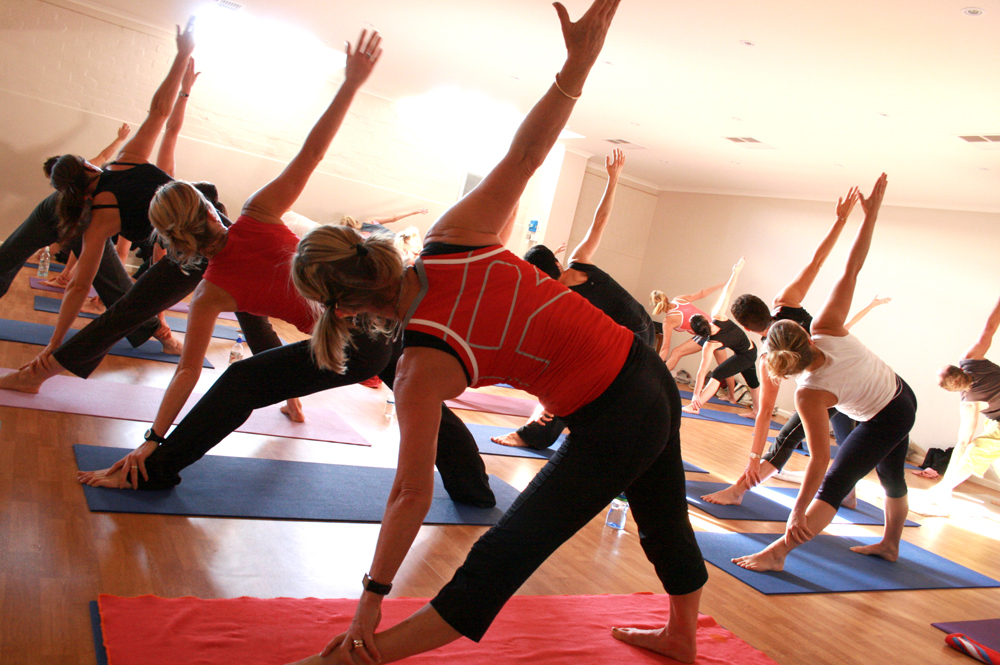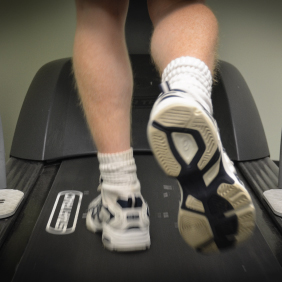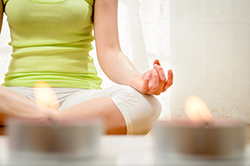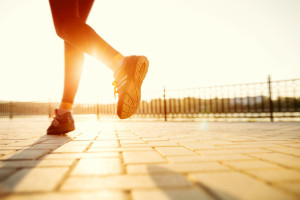
Benefits of Exercise in Addiction Recovery
 Our understanding of substance abuse and addiction has changed significantly over time. Advances in both the medical sciences and social sciences have revealed that the problem of addiction is more than simply a person’s inability to ‘say no’.
Our understanding of substance abuse and addiction has changed significantly over time. Advances in both the medical sciences and social sciences have revealed that the problem of addiction is more than simply a person’s inability to ‘say no’.
As such, addiction treatment has also become more holistic, encompassing a range of techniques from prescription medications to cognitive behavioral therapy. New research is focusing on the benefits of exercise to treat and prevent addiction, with promising results. Used in conjunction with other treatment approaches, exercise can aid recovery and bolster a patient’s commitment to clean living.
The Research
A number of clinical studies indicate that exercise can reduce the desire to take drugs, and can even act as a preventative measure against addiction. In various controlled tests, test subjects were administered drugs (mostly cocaine, amphetamines, and methamphetamines) and separated into different environments. They were then allowed to self-administer the drugs as they felt. Those placed in a sedentary environment (no means to exercise) showed significant increases in self-administered drug usage. The active subjects, however, were less likely to self-administer the drugs, or did so in reduced amounts.
In a recent Danish study, addicts who completed the researchers’ exercise program reported improved quality of life and energy levels, better body image, and reduced drug intake. A small portion of the test group even refrained from drug use altogether in the long term. This study shows the possibility that exercise, in conjunction with other forms of treatment, can significantly aid recovery and maintaining a drug-free life.
How to Get Started
 Exercise has a multitude of benefits, and not just for the recovering addict. According to the Mayo Clinic, the average adult should aim to exercise for about 30 minutes every day. That may seem a stretch if you’re still in rehabilitation and focusing on your recovery, so instead set reasonable goals for yourself when you begin. For example, your objective may be to do 30 minutes of exercise twice a week, and then work towards more regular sessions as your body adjusts.
Exercise has a multitude of benefits, and not just for the recovering addict. According to the Mayo Clinic, the average adult should aim to exercise for about 30 minutes every day. That may seem a stretch if you’re still in rehabilitation and focusing on your recovery, so instead set reasonable goals for yourself when you begin. For example, your objective may be to do 30 minutes of exercise twice a week, and then work towards more regular sessions as your body adjusts.
Also important is the kind of exercise you choose. If you’re not fit enough to do vigorous aerobic exercise, start with moderate walking or swimming – both of which will have less impact on your joints. You may also opt for solitary exercise you can do at home, or a group activity like football or taking a dance class. Find an activity that suits you and set some simple goals for yourself.
Physical Benefits
 Exercise improves the cardiovascular system and respiration. Strengthening your heart will improve your circulation – helping your body to deliver vital nutrients and remove waste from your entire body. As your lung capacity improves, you’ll also be taking in more oxygen; this will improve your endurance and energy levels.
Exercise improves the cardiovascular system and respiration. Strengthening your heart will improve your circulation – helping your body to deliver vital nutrients and remove waste from your entire body. As your lung capacity improves, you’ll also be taking in more oxygen; this will improve your endurance and energy levels.
Exercise can help you maintain your weight goals. Many addicts lose weight while they are using, and start to regain that weight in rehabilitation. Weight management isn’t about being ‘skinny’: it’s actually about finding a comfortable and healthy size for your body. Regular exercise will also restore your muscle mass.
Exercise improves your motor skills and coordination. This is important for recovering addicts, as abuse of drugs and alcohol often reduces motor function. As your muscles and nervous system improve, so too will your balance, your agility, and your fine motor skills (like holding a pen or playing piano, for example).
Mental and Emotional Benefits
 Exercise releases serotonin and endorphins, giving you a ‘natural high’. This is great for combating cravings, as your body learns to produce these ‘feel good’ chemicals again without the interference of a substance. This will also help you manage feelings of stress, anxiety, and depression.
Exercise releases serotonin and endorphins, giving you a ‘natural high’. This is great for combating cravings, as your body learns to produce these ‘feel good’ chemicals again without the interference of a substance. This will also help you manage feelings of stress, anxiety, and depression.
Exercise also improves the quality of your sleep, and can help if you battle with insomnia or disturbed sleep. Again, healthy sleep patterns are an important factor in coping with stress and depression.
Over time, you’ll find that exercise will improve your outlook on life and your self-confidence. Addiction can wreak havoc on one’s self-esteem, facilitating a cycle of shame, guilt and substance abuse. Regular exercise makes you feel good about life, and your ability to look after yourself.
Social Benefits
 Exercise requires structure and determination. Creating an exercise plan and sticking to it creates a healthy routine in your life. Working toward a goal – whether it’s the ability to do 50 sit-ups or run a half-marathon – will keep you focused on your recovery and sobriety.
Exercise requires structure and determination. Creating an exercise plan and sticking to it creates a healthy routine in your life. Working toward a goal – whether it’s the ability to do 50 sit-ups or run a half-marathon – will keep you focused on your recovery and sobriety.
Exercise can also be a fun social activity, and an opportunity to meet other people with a healthy mentality. You can sign up for classes at a yoga or dance studio, pick up a team sport, or join a hiking club. If you’re avoiding triggers (people or places you associate with substance abuse), then trying a new activity is a great way to socialize and connect away from the bar or nightclub.
Just remember, don’t overwhelm yourself with too much too soon. Talk to your doctor or rehabilitation therapist about how to set up a healthy and manageable exercise routine.
About Beachside Rehab
Written by Lexi de Coning writer for Beachside Rehab. Beachside Rehab is a private facility that provides personalized treatment for every patient. With a holistic approach to recovery, our highly qualified and reputable staff members are there to assist you with every need. Situated on beautiful Hutchinson Island in South Florida, Beachside Rehab ensures you’ll beat your addiction in a serene and comfortable environment.
The opinions and views of our guest contributors are shared to provide a broad perspective of addictions and co-occurring disorders. These are not necessarily the views of Addiction Hope, but an effort to offer a discussion of various issues by different concerned individuals. We at Addiction Hope understand that addictions result from a combination of environmental and genetic factors. If you or a loved one are suffering from an addiction, please know that there is hope for you, and seek immediate professional help.
Last Updated & Reviewed By: Jacquelyn Ekern, MS, LPC on September 18, 2015. Published on AddictionHope.com
